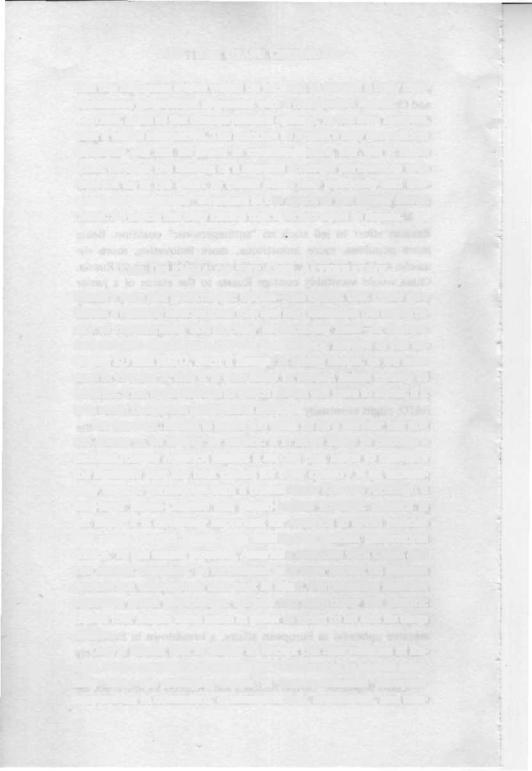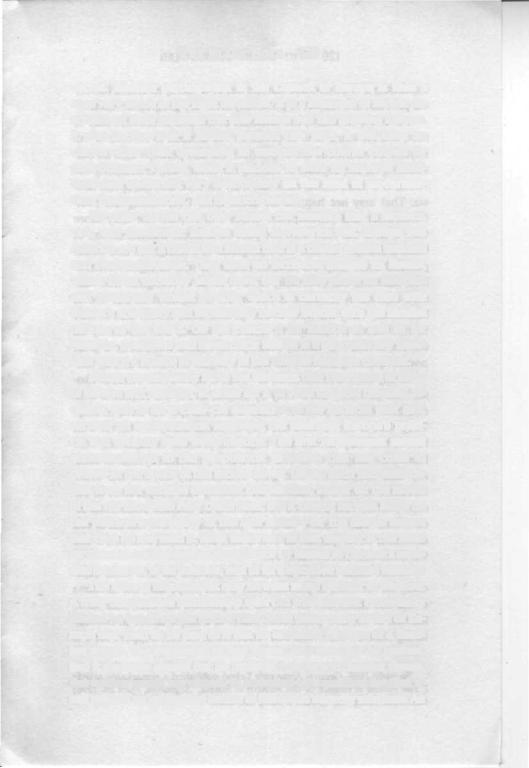
Grand_Chessboard
.pdf
THE BLACK HOLE 113
ism a distinctively anti-Russian edge. The self-definition of Ukrainian nationhood, during the critical formative stage in the history of the new state, was thus diverted from its traditional anti-Polish or anti-Romanian orientation and became focused instead on opposition to any Russian proposals for a more integrated CIS, for a special Slavic community (with Russia and Belarus), or for a Eurasian Union, deciphering them as Russian imperial tactics.
Ukraine's determination to preserve its independence was encouraged by external support. Although initially the West, especially the United States, had been tardy in recognizing the geopolitical importance of a separate Ukrainian state, by the mid1990s both America and Germany had become strong backers of Kiev's separate identity. In July 1996, the U.S. secretary of defense declared, "I cannot overestimate the importance of Ukraine as an independent country to the security and stability of all of Europe," while in September, the German chancellor—notwithstanding his strong support for President Yeltsin—went even further in declaring that "Ukraine's firm place in Europe can no longer be challenged by anyone ... No one will be able any more to dispute Ukraine's independence and territorial integrity." American policy makers also came to describe the American-Ukrainian relationship as "a strategic partnership," deliberately invoking the same phrase used to describe the American-Russian relationship.
Without Ukraine, as already noted, an imperial restoration based either on the CIS or on Eurasianism was not a viable option. An empire without Ukraine would eventually mean a Russia that would become more "Asianized" and more remote from Europe. Moreover, Eurasianism was also not especially appealing to the newly independent Central Asians, few of whom were eager for a new union with Moscow. Uzbekistan became particularly assertive in supporting Ukraine's objections to any elevation of the CIS into a supranational entity and in opposing the Russian initiatives designed to enhance the CIS.
Other CIS states, also wary of Moscow's intentions, tended to cluster around Ukraine and Uzbekistan in opposing or evading Moscow's pressures for closer political and military integration. Moreover, a sense of national consciousness was deepening in almost alt of the new states, a consciousness increasingly focused on repudiating past submission to Moscow as colonialism and on

114 THE GRAND CHESSBOARD |
|
eradicating its various legacies. Thus, even the ethnically vulnera- |
|
ble Kazakstan joined the other Central Asian states in abandoning |
|
the Cyrillic alphabet and replacing it with the Latin script as |
|
adapted earlier by Turkey. In effect, by the mid-1990s a bloc, qui- |
|
etly led by Ukraine and comprising Uzbekistan, Turkmenistan, |
|
Azerbaijan, and sometimes also Kazakstan, Georgia, and Moldova, |
|
had informally emerged to obstruct Russian efforts to use the CIS |
|
as the tool for political integration. |
|
Ukrainian insistence on only limited and largely economic inte- |
|
gration had the further effect of depriving the notion of a "Slavic |
|
Union" of any practical meaning. Propagated by some Slavophiles |
|
and given prominence by Aleksandr Solzhenitsyn's support, this |
|
idea automatically became geopolitically meaningless once it was |
|
repudiated by Ukraine. It left Belarus alone with Russia; and it also |
|
implied a possible partition of Kazakstan, with its Russian-popu- |
|
lated northern regions potentially part of such a union. Such an |
|
option was understandably not reassuring to the new rulers of |
' |
Kazakstan and merely intensified the anti-Russian thrust of their |
|
nationalism, In Belarus, a Slavic Union without Ukraine meant |
|
nothing less than incorporation into Russia, thereby also igniting |
|
more volatile feelings of nationalist resentment. |
|
These external obstacles to a "near abroad" policy were power- |
|
fully reinforced by an important internal restraint: the mood of the |
|
Russian people. Despite the rhetoric and the political agitation |
|
among the political elite regarding Russia's special mission in the |
|
space of the former empire, the Russian people—partially out of |
|
sheer fatigue but also out of pure common sense—showed little |
|
enthusiasm for any ambitious program of imperial restoration. |
|
They favored open borders, open trade, freedom of movement, |
|
and special status for the Russian language, but political integra- |
|
tion, especially if it was to involve economic costs or require |
|
bloodshed, evoked little enthusiasm. The disintegration of the |
|
"union" was regretted, its restoration favored; but public reaction |
|
to the war in Chechnya indicated that any policy that went beyond |
|
the application of economic leverage and/or political pressure |
|
would lack popular support. |
|
In brief, the ultimate geopolitical inadequacy of the "near |
|
abroad" priority was that Russia was not strong enough politically |
|
to impose its will and not attractive enough economically to be |
|

THE BLACK HOLE 115
able to seduce the new states. Russian pressure merely made them seek more external ties, first and foremost with the West but in some cases also with China and the key Islamic countries to the south. When Russia threatened to form its own military bloc in response to NATO's expansion, it begged the question "With whom?" And it begged the even more painful answer: at the most, maybe with Belarus and Tajikistan.
The new states, if anything, were increasingly inclined to distrust even perfectly legitimate and needed forms of economic integration with Russia, fearing their potential political consequences. At the same time, the notions of Russia's alleged Eurasian mission and of the Slavic mystique served only to isolate Russia further from Europe and, more generally, from the West, thereby perpetuating the post-Soviet crisis and delaying the needed modernization and westernization of Russian society along the lines of what Kemal Ataturk did in Turkey in the wake of the Ottoman Empire's collapse. The "near abroad" option thus offered Russia not a geopolitical solution but a geopolitical illusion.
If not a condominium with America and if not the "near abroad," then what other geostrategic option was open to Russia? The failure of the Western orientation to produce the desired global coequality with America for a "democratic Russia," which was more a slogan than reality, caused a letdown among the democrats, whereas the reluctant recognition that "reintegration" of the old empire was at best a remote possibility tempted some Russian geopoliticians to toy with the idea of some sort of counteralliance aimed at America's hegemonic position in Eurasia.
In early 1996, President Yeltsin replaced his Western-oriented foreign minister, Kozyrev, with the more experienced but also orthodox former Communist international specialist Evgenniy Primakov, whose long-standing interest has been Iran and China. Some Russian commentators speculated that Primakov's orientation might precipitate an effort to forge a new "antihegemonic" coalition, formed around the three powers with the greatest geopolitical stake in reducing America's primacy in Eurasia. Some of Primakov's initial travel and comments reinforced that impression. Moreover, the existing Sino-franian connection in weapons trade as well as the Russian inclination to cooperate in Iran's ef-

116 THE GRAND CHESSBOARD
forts to increase its access to nuclear energy seemed to provide a perfect fit for closer political dialogue and eventual alliance. The result could, at least theoretically, bring together the world's leading Slavic power, the world's most militant Islamic power, and the world's most populated and powerful Asian power, thereby creating a potent coalition.
The necessary point of departure for any such counterailiance option involved a renewal of the bilateral Sino-Russian connection, capitalizing on the resentment among the political elites of both states over the emergence of America as the only global superpower. In early 1996, Yeltsin traveled to Beijing and signed a declaration that explicitly denounced global "hegemonic" tendencies, thereby implying that the two states would align themselves against the United States. In December, the Chinese prime minister, Li Peng, returned the visit, and both sides not only reiterated their opposition to an international system "dominated by one power" but also endorsed the reinforcement of existing alliances. Russian commentators welcomed this development, viewing it as a positive shift in the global correlation of power and as an appropriate response to America's sponsorship of NATO's expansion. Some even sounded gleeful that the Sino-Russian alliance would give America its deserved comeuppance.
However, a coalition allying Russia with both China and Iran can develop only if the United States is shortsighted enough to antagonize China and Iran simultaneously. To be sure, that eventuality cannot be excluded, and American conduct in 1995-1996 almost seemed consistent with the notion that the United States was seeking an antagonistic relationship with both Teheran and Beijing. However, neither Iran nor China was prepared to cast its lot strategically with a Russia that was both unstable and weak. Both realized that any such coalition, once it went beyond some occasional tactical orchestration, would risk their respective access to the more advanced world, with its exclusive capacity for investment and with its needed cutting-edge technology. Russia had too little to offer to make it a truly worthy partner in an antihegemonic coalition.
In fact, lacking any shared ideology and united merely by an "antihegemonic" emotion, any such coalition would be essentially an alliance of a part of the Third World against the most advanced

THE BLACK HOLE 117
portions of the First World. None of its members would gain much, and China especially would risk losing its enormous investment inflows. For Russia, too, "the phantom of a Russia-China alliance ...
would sharply increase the chances that Russia would once again become restricted from Western technology and capital," as a critical Russian geopolitician noted.8 The alignment would eventually condemn all of its participants, whether two or three in number, to prolonged isolation and shared backwardness.
Moreover, China would be the senior partner in any serious Russian effort to jell such an "antihegemonic" coalition. Being more populous, more industrious, more innovative, more dynamic, and harboring some potential territorial designs on Russia, China would inevitably consign Russia to the status of a junior partner, while at the same time lacking the means (and probably any real desire) to help Russia overcome its backwardness. Russia would thus become a buffer between an expanding Europe and an expansionist China.
Finally, some Russian foreign affairs experts continued to entertain the hope that a stalemate in European integration, including perhaps internal Western disagreements over the future shape of NATO, might eventually create at least tactical opportunities for a Russo-German or a Russo-French flirtation, in either case to the detriment of Europe's transatlantic connection with America. This perspective was hardly new, for throughout the Cold War, Moscow periodically tried to play either the German or the French card. Nonetheless, it was not unreasonable for some of Moscow's geopoliticians to calculate that a stalemate in European affairs could create tactical openings that might be exploited to America's disadvantage.
But that is about all that could thereby be attained: purely tactical options. Neither France nor Germany is likely to forsake the American connection. An occasional flirtation, especially with the French, focused on some narrow issue, cannot be excluded—but a geopolitical reversal of alliances would have to be preceded by a massive upheaval in European affairs, a breakdown in European unification and in transatlantic ties. And even then, it is unlikely
"Aleksei Bogaturov. "Current Relations and Prospects for Interaction BetweenRussiaandtheUnitedStates,"NezavisimayaGazeta,June28,1996.

118 THE GRAND CHESSBOARD
that the European states would be inclined to pursue a truly comprehensive geopolitical alignment with a disoriented Russia.
Thus, none of the counteralliance options, in the final analysis, offer a viable alternative. The solution to Russia's new geopolitical dilemmas will not be found in counteralliance, nor will it come about through the illusion of a coequal strategic partnership with America or in the effort to create some new politically and economically "integrated" structure in the space of the former Soviet Union. All evade the only choice that is in fact open to Russia.
THE DILEMMA OF THE ONE ALTERNATIVE
Russia's only real geostrategic option—the option that could give Russia a realistic international role and also maximize the opportunity of transforming and socially modernizing itself—is Europe. And not just any Europe, but the transatlantic Europe of the enlarging EU and NATO. Such a Europe is taking shape, as we have seen in chapter 3, and it is also likely to remain linked closely to America. That is the Europe to which Russia will have to relate, if it is to avoid dangerous geopolitical isolation.
For America, Russia is much too weak to be a partner but still too strong to be simply its patient. It is more likely to become a problem, unless America fosters a setting that helps to convince the Russians that the best choice for their country is an increasingly organic connection with a transatlantic Europe. Although a long-term Russo-Chinese and Russo-Iranian strategic alliance is not likely, it is obviously important for America to avoid policies that could distract Russia from making the needed geopolitical choice. To the extent possible, American relations with China and Iran should, therefore, be formulated with their impact on Russian geopolitical calculations also kept in mind. Perpetuating illusions regarding grand geostrategic options can only delay the historic choice that Russia must make in order to bring to an end its deep malaise.
Only a Russia that is willing to accept the new realities of Europe, both economic and geopolitical, will be able to benefit internally from the enlarging scope of transcontinental European cooperation in commerce, communications, investment, and edu-

THE BLACK HOLE 119
cation. Russia's participation in the Council of Europe is thus a step very much in the right direction. It is a foretaste of further institutional links between the new Russia and the growing Europe. It also implies that if Russia pursues this path, it will have no choice other than eventually to emulate the course chosen by post-Ottoman Turkey, when it decided to shed its imperial ambitions and embarked very deliberately on the road of modernization, Europeanization, and democratization.
No other option can offer Russia the benefits that a modern, rich, and democratic Europe linked to. America can. Europe and America are not a threat to a Russia that is a nonexpansive national and democratic state. They have no territorial designs on Russia, which China someday might have, nor do they share an insecure and potentially violent frontier, which is certainly the case with Russia's ethnically and territorially unclear border with the Muslim nations to the south. On the contrary, for Europe as well as for America, a national and democratic Russia is a geopolitically desirable entity, a source of stability in the volatile Eurasian complex.
Russia consequently faces the dilemma that the choice in favor of Europe and America, in order for it to yield tangible benefits, requires, first of all, a clear-cut abjuration of the imperial past and, second, no tergiversation regarding the enlarging Europe's political and security links with America. The first requirement means accommodation to the geopolitical pluralism that has come to prevail in the space of the former Soviet Union. Such accommodation does not exclude economic cooperation, rather on the model of the old European Free Trade Area, but it cannot include limits on the political sovereignty of the new states—for the simple reason that they do not wish it. Most important in that respect is the need for clear and unambiguous acceptance by Russia of Ukraine's separate existence, of its borders, and of its distinctive national identity.
The second requirement may be even more difficult to swallow. A truly cooperative relationship with the transatlantic community cannot be based on the notion that those democratic states of Europe that wish to be part of it can be excluded because of a Russian say-so. The expansion of that community need not be rushed, and it certainly should not be promoted on an anti-Russian theme. But neither can it, nor should it, be halted by a political fiat that itself reflects an antiquated notion of European security relations. An

120 THE GRAND CHESSBOARD
expanding and democratic Europe has to be an open-ended historical process, not subject to politically arbitrary geographic limits.
For many Russians, the dilemma of the one alternative may at first, and for some time to come, be too difficult to resolve. It will require an enormous act of political will and perhaps also an outstanding leader, capable of making the choice and articulating the vision of a democratic, national, truly modern and European Russia. That may not happen for some time. Overcoming the postCommunist and postimperial crises will require not only more time than is the case with the post-Communist transformation of Central Europe but also the emergence of a farsighted and stable political leadership. No Russian Ataturk is now in sight. Nonetheless, Russians will eventually have to come to recognize that Russia's national redefinition is not an act of capitulation but one of liberation.9 They will have to accept that what Yeltsin said in Kiev in 1990 about a nonimperial future for Russia was absolutely on the mark. And a genuinely nonimperial Russia will still be a great power, spanning Eurasia, the world's largest territorial unit by far.
In any case, a redefinition of "What is Russia and where is Russia" will probably occur only by stages, and it will require a wise and firm Western posture. America and Europe will have to help. They should offer Russia not only a special treaty or charter with NATO, but they should also begin the process of exploring with Russia the shaping of an eventual transcontinental system of security and cooperation that goes considerably beyond the loose structure of the Organization for Security and Cooperation in Europe (OSCE). And if Russia consolidates its internal democratic institutions and makes tangible progress in free-market-based economic development, its ever-closer association with NATO and the EU should not be ruled out.
At the same time, it is equally important for the West, especially for America, to pursue policies that perpetuate the dilemma of the one alternative for Russia. The political and economic stabilization of the new post-Soviet states is a major factor in necessitating Russia's historical self-redefinition. Hence, support for the
'In early 1996, General AJeksandr Lebed published a remarkable article ("The Fading of Empire or the Rebirth of Russia," Segodnya, April 26, 1996) that went a long way toward making that case.

THE BLACK HOLE 121
new post-Soviet states—for geopolitical pluralism in the space of the former Soviet empire—has to be an integral part of a policy designed to induce Russia to exercise unambiguously its European option. Among these states, three are geopolitically especially important: Azerbaijan, Uzbekistan, and Ukraine.
An independent Azerbaijan can serve as a corridor for Western access to the energy-rich Caspian Sea basin and Central Asia. Conversely, a subdued Azerbaijan would mean that Central Asia can be sealed off from the outside world and thus rendered politically vulnerable to Russian pressures for reiritegration. Uzbekistan, nationally the most vital and the most populous of the Central Asian states, represents a major obstacle to any renewed Russian control over the region. Its independence is critical to the survival of the other Central Asian states, and it is the least vulnerable to Russian pressures.
Most important, however, is Ukraine. As the EU and NATO expand, Ukraine will eventually be in the position to choose whether it wishes to be part of either organization. It is likely that, in order to reinforce its separate status, Ukraine will wish to join both, once they border upon it and once its own internal transformation begins to qualify it for membership. Although that will take time, it is not too early for the West—while further enhancing its economic and security ties with Kiev—to begin pointing to the decade 2005-2015 as a reasonable time frame for the initiation of Ukraine's progressive inclusion, thereby reducing the risk that the Ukrainians may fear that Europe's expansion will halt on the PolishUkrainian border.
Russia, despite its protestations, is likely to acquiesce in the expansion of NATO in 1999 to include several Central European countries, because the cultural and social gap between Russia and Central Europe has widened so much since the fall of communism. By contrast, Russia will find it incomparably harder to acquiesce in Ukraine's accession to NATO, for to do so would be to acknowledge that Ukraine's destiny is no longer organically linked to Russia's. Yet if Ukraine is to survive as an independent state, it will have to become part of Central Europe rather than Eurasia, and if it is to be part of Central Europe, then it will have to partake fully of Central Europe's links to NATO and the European Union. Russia's acceptance of these links would then define Russia's own decision

122 THE GRAND CHESSBOARD
to be also truly a part of Europe. Russia's refusal would be tantamount to the rejection of Europe in favor of a solitary "Eurasian" identity and existence.
The key point to bear in mind is that Russia cannot be in Europe without Ukraine also being in Europe, whereas Ukraine can be in Europe without Russia being in Europe. Assuming that Russia decides to cast its lot with Europe, it follows that ultimately it is in Russia's own interest that Ukraine be included in the expanding European structures. Indeed, Ukraine's relationship to Europe could be the turning point for Russia itself. But that also means that the defining moment for Russia's relationship to Europe is still some time off—"defining" in the sense that Ukraine's choice in favor of Europe will bring to a head Russia's decision regarding the next phase of its history: either to be a part of Europe as well or to become a Eurasian outcast, neither truly of Europe nor Asia and mired in its "near abroad" conflicts.
It is to be hoped that a cooperative relationship between an enlarging Europe and Russia can move from formal bilateral links to more organic and binding economic, political, and security ties. In that manner, in the course of the first two decades of the next century, Russia could increasingly become an integral part of a Europe that embraces not only Ukraine but reaches to the Urals and even beyond. An association or even some form of membership for Russia in the European and transatlantic structures would in turn open the doors to the inclusion of the three Caucasian countries— Georgia, Armenia, and Azerbaijan—that so desperately aspire to a European connection.
One cannot predict how fast that process can move, but one thing is certain: it will move faster if a geopolitical context is shaped that propels Russia in that direction, while foreclosing other temptations. And the faster Russia moves toward Europe, the sooner the black hole of Eurasia will be filled by a society that is increasingly modern and democratic. Indeed, for Russia the dilemma of the one alternative is no longer a matter of making a geopolitical choice but of facing up to the imperatives of survival.
